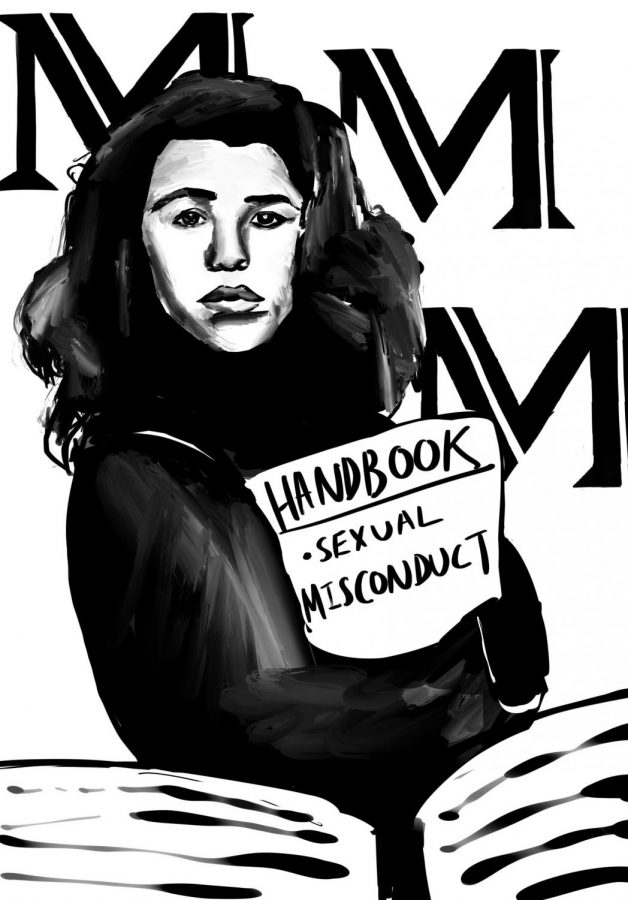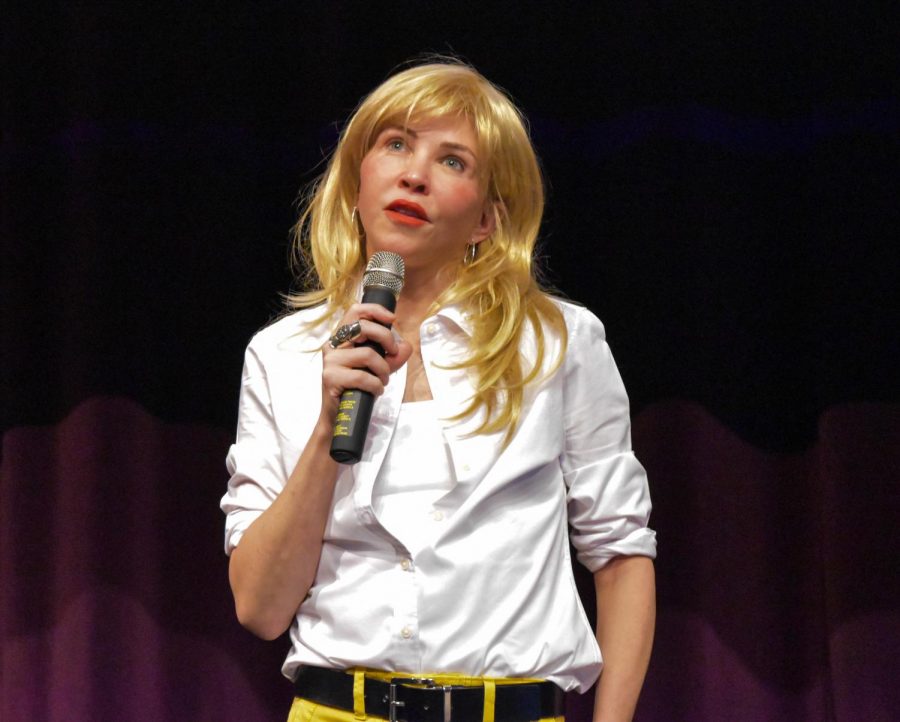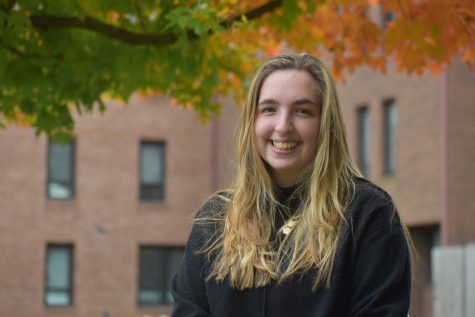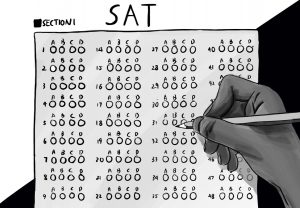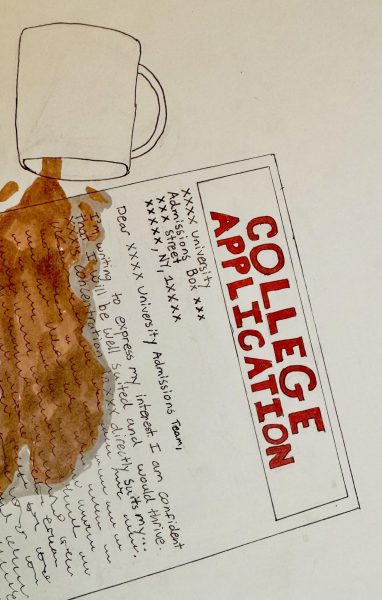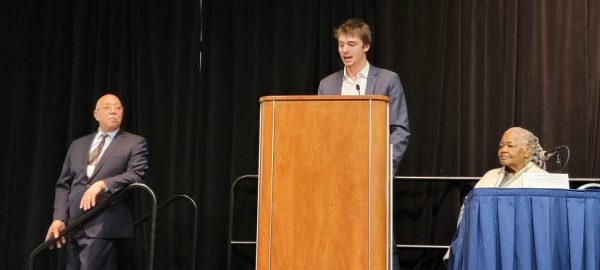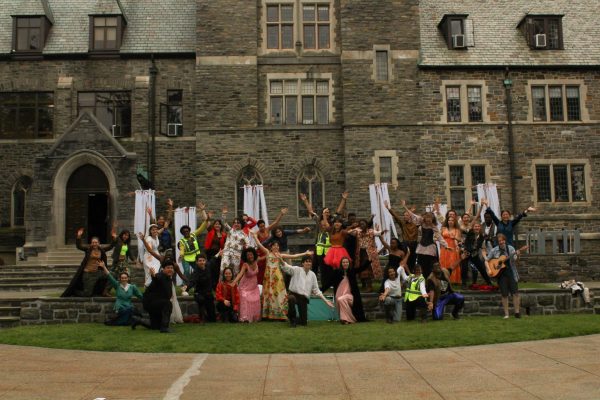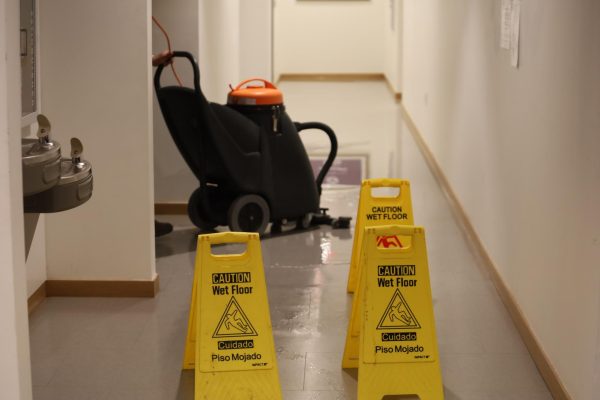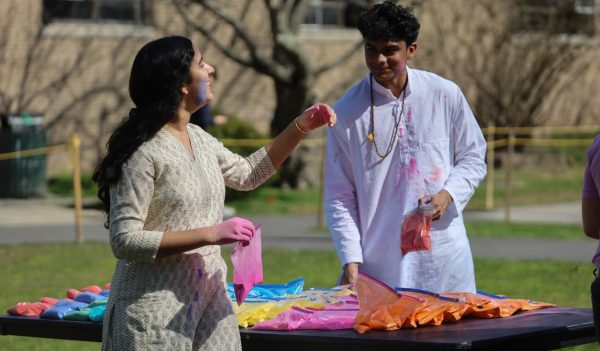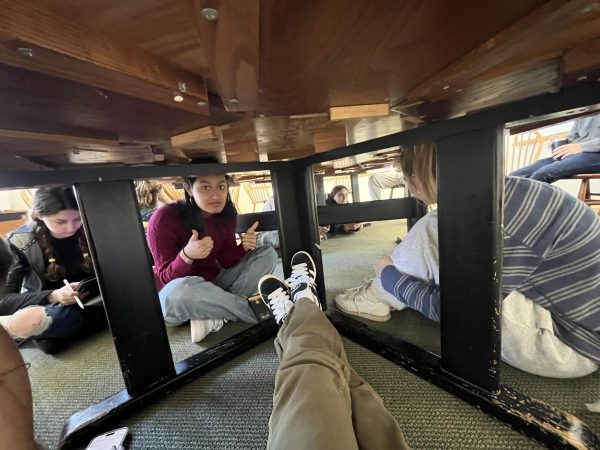Masters employs ‘revolutionary’ sexual misconduct policy
Katie Koestner was featured on the cover of time magazine in 1991, after becoming the first woman to coin the term “date rape” and speak out against college campus sexual assault.
November 21, 2019
Following a series of complaints and discussions surrounding Masters’ sexual misconduct policy, a group of Upper School administrators completely reconstructed it with the goal of prioritizing healthy communication surrounding sexual intimacy and relationships.
Last spring, a group of students organized a town hall to discuss potential changes to the policy. in the school’s sexual misconduct policy. Prior to this meeting, a small group of administrators participated in a workshop on sexual misconduct in schools, led by renowned sexual assault survivor and activist Katie Koestner.
The first woman in the United States to formally speak out as a victim of sexual assault on a college campus in 1990, and actually coin the term “date rape,” Koestner has been at the forefront of the national movement to reform sexual misconduct policies in schools. She has aided thousands of schools and institutions in writing more comprehensive policies.
Concerns regarding Masters’ previous policy dealt mostly with the concept of transparency, Interim Dean of Students Jeff Carnevale said. “As the students pointed out, I don’t think the policy clearly articulated what the steps were when someone reported a [case of] sexual misconduct.”
Over the summer, Koestner and her team worked as consultants to Masters’ administration. Following a period of intense reform, the current policy outlined in the Upper School Family Handbook now features an 11-step protocol that details the course of action that will be taken with regard to reporting and investigating alleged sexual misconduct, as well as the rights of students involved in said cases.
Carnevale highlighted the administration’s main goal in revising the sexual misconduct policy.“We knew we wanted it to be the most progressive policy out there, and to really reflect the culture and climate surrounding sexual misconduct,” he said. “We also wanted it to be fair and manageable so that it is something we can engage with consistently.”
In the words of Koestner, the policy has not only been progressive, but rather, “revolutionary”, both in its consideration of all possible acts of sexual misconduct and the thorough investigative process that clearly outlines the rights of all involved parties.
Koestner, who has travelled globally and spoken at nearly 5,000 schools nationwide since her own sexual assault, indicated that she has yet to see a high school take on such a comprehensive sexual misconduct policy, stating, “I’ve been to every one of the best schools in the country, and spent my life trying to change laws and policies. Masters is the first in history to be willing to take on an entire revamp of the sexual misconduct policy.”
Koestner feels that the ability of Masters to adopt such a forward-thinking policy reflects the goals and ideals of Head of School Laura Danforth and those in the Upper School administrative offices. She shared her admiration for Danforth and the Masters’ administration. “By being so granular with [their] policy, Laura Danforth and Masters are really saying, ‘We’re willing to put ink on the paper and say we will take on all of these nuances of sexual misconduct, from stalking to sexual harassment to sexual exploitation, every single facet, from unhealthy relationships to disrespect.’ That was what she was willing to do.”
Active communication and access to support systems are now the grounding principles of the investigative procedure, Carnevale affirmed. “The big piece through it all is communicating, making sure both parties have access to support here at school and outside of school, and that they’re kept up to speed with investigation so they know what’s happening each step of the way.”
The new standards employed by Masters state the rights of students, and more specifically the rights of adolescents as sexual beings. “The Masters School recognizes the importance of sexual intimacy as part of healthy adolescent development, and provides education, counseling and support services around sex, sexual orientation, gender identity, sexual activity, sexual health, gender, healthy relationships and consent.”
Koestner commended Masters’ proactivity, especially the students.“I was excited about the ability of the students to rally and voice their opinion so strongly and be heard so well that the school administration said ‘Ok, you’re demanding change and we’re willing to go there.’”
Former Co-Chair Rachel Aideyan, ‘19, along with a group of her classmates, were the most vocal about the issues surrounding the former sexual misconduct policy. Following the town hall, they remained involved in the reformation process.
Having witnessed the massive changes to the policy, Aideyan said she now feels the school is beginning to accommodate the needs of any victims of sexual misconduct. “It’s now about how to make sure someone is safe, and how to make sure someone is not afraid to relieve themselves of that trauma they experienced.”
Koestner will continue to be involved as Masters continues to have discussions surrounding the importance of sexual health, consent and communal respect. On Nov. 21 Masters will be hosting a “Day of Respect,” during which Koestner and members of her team will work with students and faculty to address the nuances of sexual misconduct with a special focus on consent training.
*Story Update – Dec. 14, 2019
After working with both Upper and Middle school administration over the summer, Koestner visited campus on Nov. 21, 2019, during what was referred to as a “Day of Respect”. Students and faculty listened to Koestner speak about her own personal experience of sexual assault and what later spurred her decision to speak out against sexual misconduct on school campuses. Everyone then proceeded to take part in small group sessions to discuss healthy relationships, aspects of identity and how to foster safe and consensual sexual experiences.
Koestner felt that this day gave her the perfect opportunity to get to know and support the students who she was unable to meet over the summer when she was helping to create the sexual misconduct policy. She said, “I am always so appreciative of any chance I get to actually work with the students who I am writing the policy for, especially at Masters where everyone was eager to listen.”
In her initial address to members of the Upper School student body, Koestner repeatedly said, “Two minutes, 12 steps, that’s all it takes.” Her goal in repeating the simple phrase over and over was to force to students to think about how a seemingly insignificant amount of time and effort can prevent what has the capacity to be a life-altering event.
Koestner emphasized this point, “What I really want the students to understand is that all it takes is two minutes to just go over to someone who looks as if they may be getting themself into a compromising situation and just saying, ‘Hey, are you alright?'”




